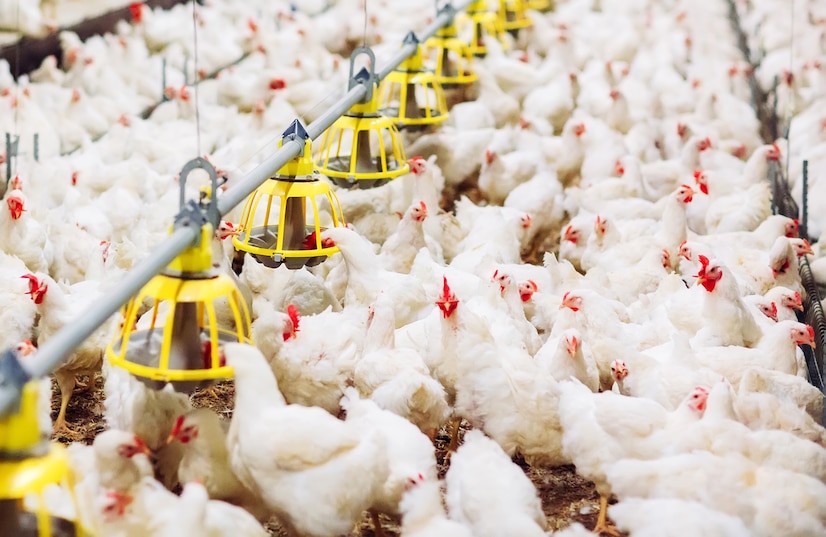Raising chickens can be a rewarding and enjoyable experience, but sometimes our feathered friends exhibit behaviors that may signal underlying health or environmental concerns. In South Africa, where diverse climates and conditions exist, it’s essential for poultry keepers to be vigilant and attuned to their chickens’ behaviors. Here are 20 odd chicken behaviors that may indicate potential issues:
- Feather Pecking:
- Symptom: Chickens aggressively pecking at each other’s feathers.
- Potential Issue: Overcrowding, boredom, or dietary deficiencies may lead to feather pecking.
- Lethargy:
- Symptom: Chickens appearing unusually lethargic or inactive.
- Potential Issue: Illness, parasites, or stress can cause lethargy in chickens.
- Reduced Egg Production:
- Symptom: A sudden decrease in egg laying.
- Potential Issue: Poor nutrition, disease, or environmental stress may affect egg production.
- Abnormal Droppings:
- Symptom: Changes in color, consistency, or frequency of droppings.
- Potential Issue: Digestive issues, infections, or parasites can cause abnormal droppings.
- Persistent Sneezing or Coughing:
- Symptom: Frequent sneezing or coughing sounds.
- Potential Issue: Respiratory infections or exposure to irritants may be affecting the respiratory system.
- Unusual Vocalizations:
- Symptom: Changes in the usual clucking or crowing sounds.
- Potential Issue: Pain, stress, or discomfort may prompt altered vocalizations.
- Pecking Order Disturbances:
- Symptom: Abrupt changes in the established pecking order.
- Potential Issue: Stress, introduction of new birds, or illness can disrupt the pecking order.
- Excessive Scratching or Pacing:
- Symptom: Chickens constantly scratching or pacing.
- Potential Issue: Parasites, mites, or environmental stress may cause excessive scratching.
- Isolation:
- Symptom: A chicken isolating itself from the flock.
- Potential Issue: Illness, injury, or bullying may lead to isolation.
- Dull or Ruffled Feathers:
- Symptom: Lackluster, ruffled, or unkempt feathers.
- Potential Issue: Poor nutrition, mites, or sickness can result in a dull coat.
- Abnormal Eating Habits:
- Symptom: Refusal to eat or excessive eating.
- Potential Issue: Digestive problems, crop issues, or improper nutrition may be at play.
- Egg Abnormalities:
- Symptom: Soft-shelled eggs, double-yolked eggs, or irregularities.
- Potential Issue: Calcium deficiency, stress, or reproductive disorders may cause egg abnormalities.
- Aggression:
- Symptom: Sudden aggressive behavior towards humans or other chickens.
- Potential Issue: Stress, overcrowding, or territorial disputes may trigger aggression.
- Visible Parasites:
- Symptom: Presence of mites, lice, or worms on the chicken’s body.
- Potential Issue: Parasitic infestations can lead to health problems if left untreated.
- Abnormal Laying Habits:
- Symptom: Laying eggs outside the nesting box or irregular laying patterns.
- Potential Issue: Stress, discomfort, or issues with the nesting area may cause irregular laying habits.
- Unusual Head Movements:
- Symptom: Repeated head shaking or tilting.
- Potential Issue: Ear infections, respiratory problems, or neurological issues may manifest through head movements.
- Sudden Weight Loss:
- Symptom: Noticeable loss of body weight.
- Potential Issue: Illness, parasites, or inadequate nutrition may contribute to weight loss.
- Feather Eating:
- Symptom: Chickens consuming their own feathers or those of others.
- Potential Issue: Nutritional deficiencies or behavioral issues may prompt feather eating.
- Uncoordinated Movements:
- Symptom: Difficulty walking or unsteady movements.
- Potential Issue: Joint problems, injury, or infections can result in uncoordinated movements.
- Pale Comb or Wattles:
- Symptom: Loss of color in the comb or wattles.
- Potential Issue: Anemia, respiratory issues, or circulatory problems may lead to pale combs or wattles.
If you observe any of these odd behaviors in your chickens, it’s crucial to promptly investigate and, if necessary, consult with a veterinarian experienced in poultry health. Timely intervention can help address potential issues and ensure the well-being of your flock in the diverse conditions of South Africa.
Join 'Farmers Mag' WhatsApp Channel
Get the latest Farming news and tips delivered straight to your WhatsApp
CLICK HERE TO JOIN






